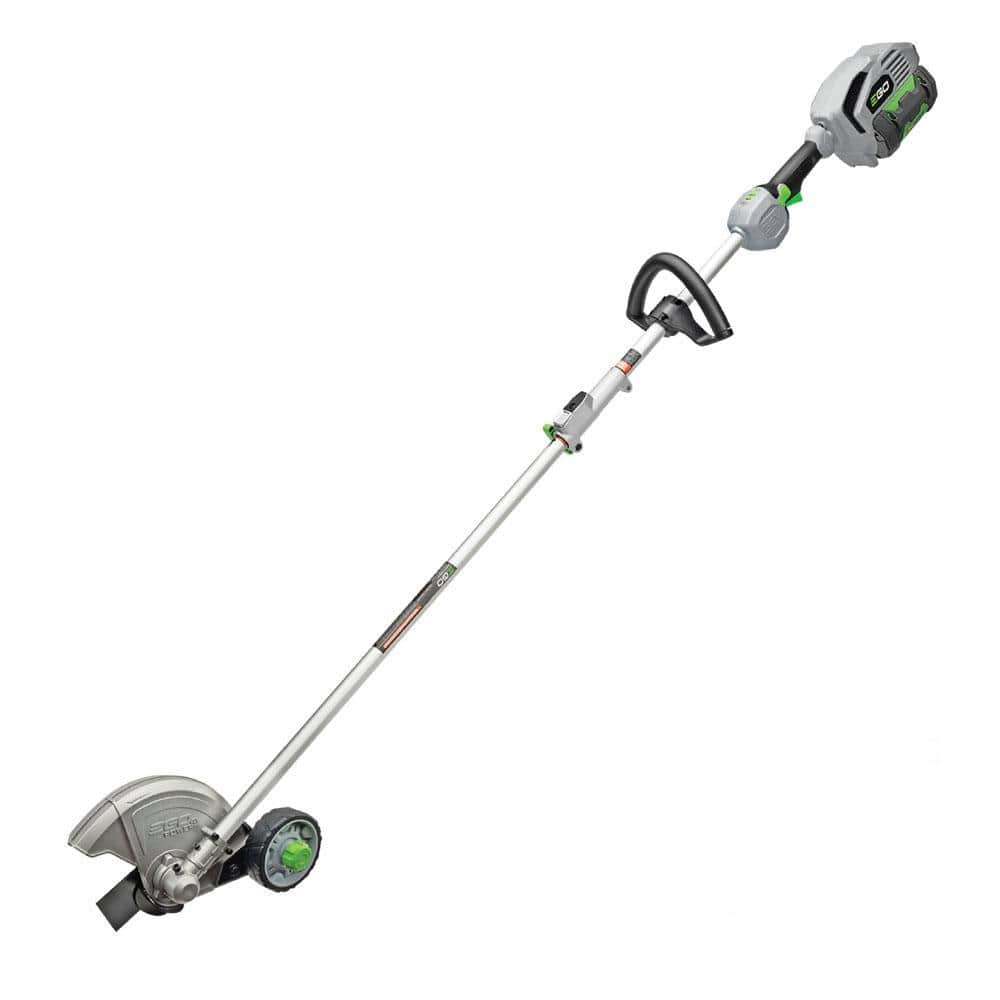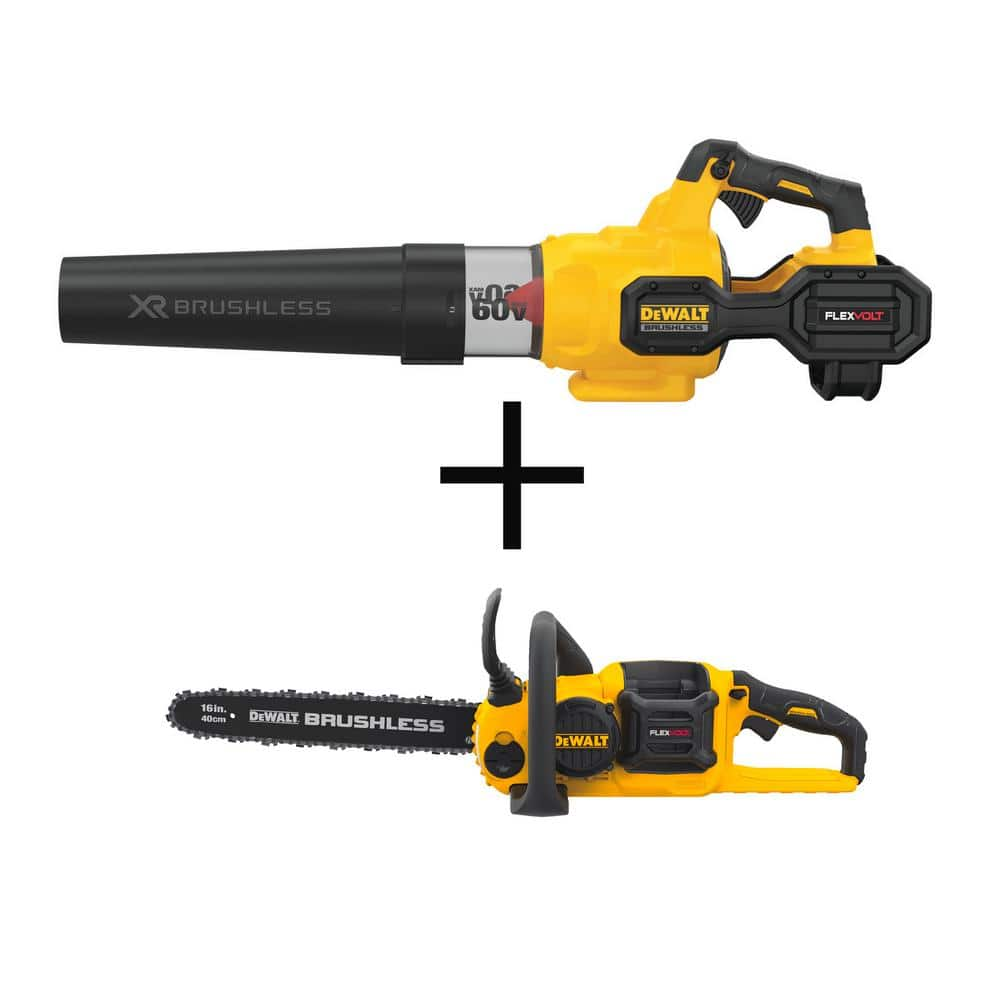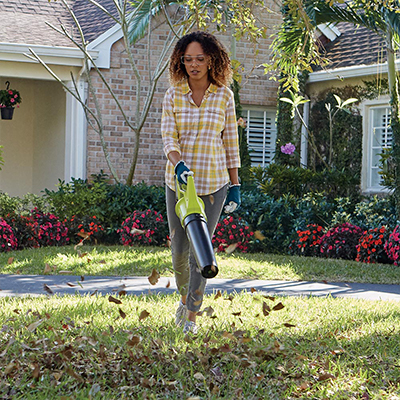Corded vs. Cordless Outdoor Power Tools
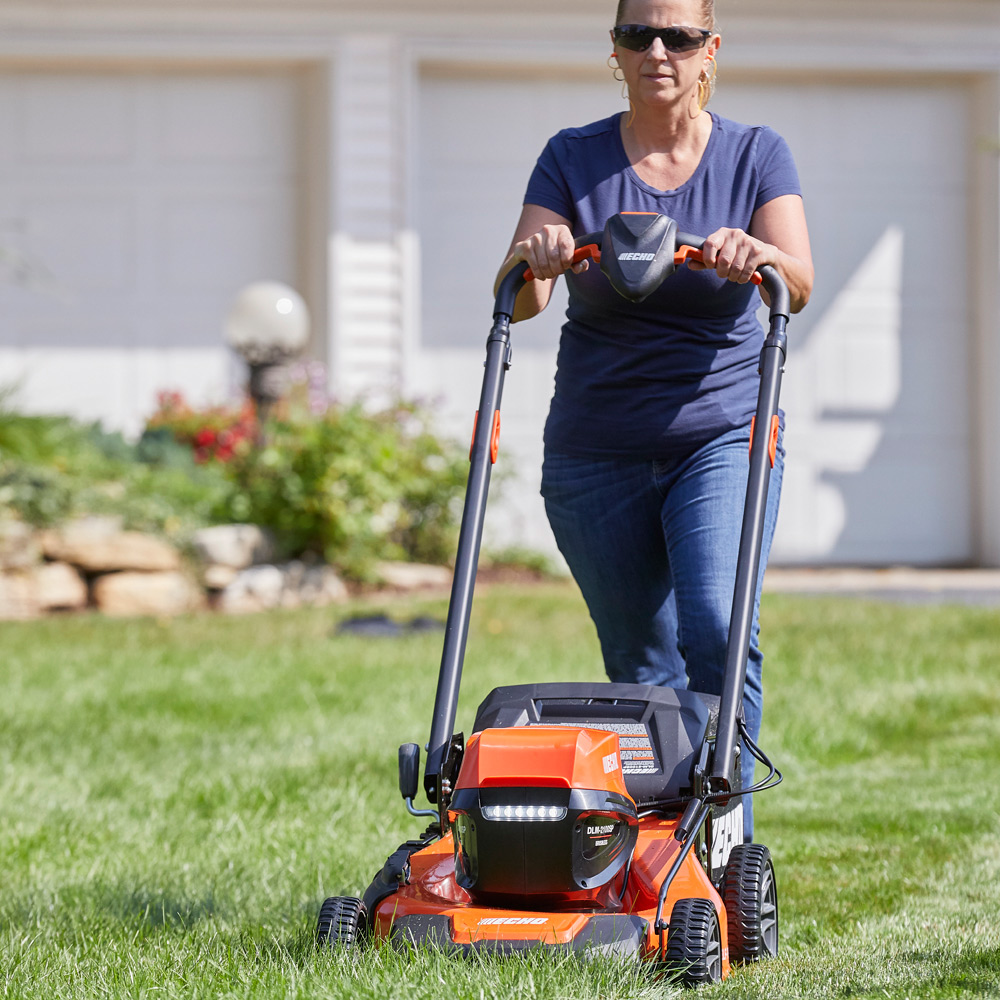
Last updated September 7, 2023
If you’ve decided to ditch the gas, spark plugs and engine maintenance required for your lawn care equipment, you might still be debating electric corded vs. cordless outdoor power tools. It can be a difficult selection since both types have benefits and disadvantages.
This guide highlights the pros and cons to help you choose between corded vs. cordless outdoor power tools.
Table of Contents
Benefits of Cordless Outdoor Power Tools
Disadvantages of Cordless Outdoor Power Tools
Benefits of Corded Outdoor Power Tools
Disadvantages of Corded Outdoor Power Tools
How to Choose Between Corded and Cordless Power Tools
Tips for Buying Cordless Power Tools
Benefits of Cordless Outdoor Power Tools
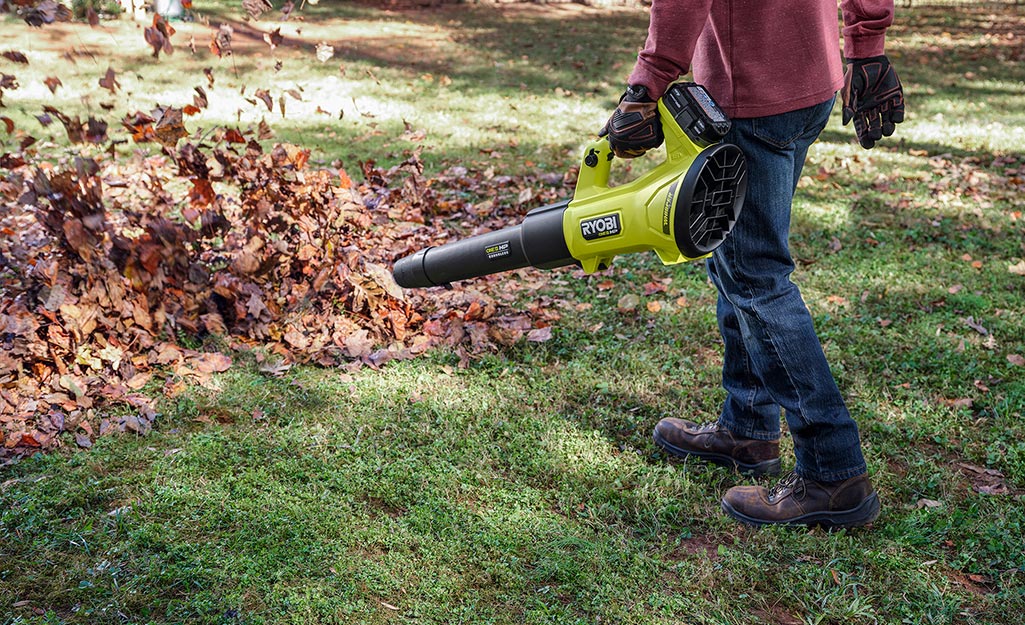
Cordless outdoor power tools are fully mobile and can provide gas-like power with batteries. The convenience of portability is a key benefit of using cordless power tools, like a cordless leaf blower, but there are more:
- Today’s lithium-ion batteries are capable of providing up to 60 minutes of operating time, depending on conditions.
- Rechargeable batteries are often interchangeable with other power tools of the same brand.
- Easy operation with push-button or trigger start.
- Low maintenance and no need for special fuel or mixing oil.
- Less noise than gas-powered counterparts.
- Off-season storage requires no special procedures.
Disadvantages of Cordless Outdoor Power Tools
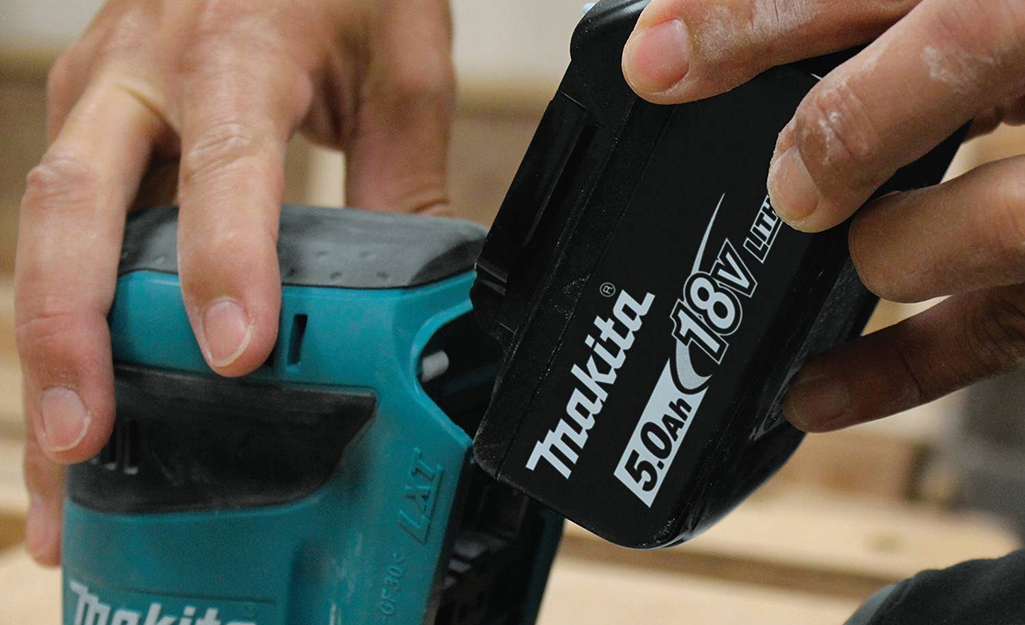
No matter how efficient a battery is, it will run out of power and need to be recharged. Keeping a fully charged battery (and often a backup battery) available is necessary to make sure you can complete your job with minimal interruption.
The attached battery adds to the overall weight of the tool, making them heavier than a similar corded version. This might not matter for a cordless lawn mower that is pushed, but could make a difference when using something like a cordless hedge trimmer.
Benefits of Corded Outdoor Power Tools

Corded tools share many benefits with cordless varieties. However, the best thing about electric trimmers and other corded outdoor power tools is the consistent amount of power during operation. Because they are connected to an electrical outlet by an extension cord, performance doesn’t suffer after long stretches of use.
Corded outdoor tools weigh less than their cordless counterparts with heavy batteries, which can reduce user fatigue.
Disadvantages of Corded Outdoor Power Tools
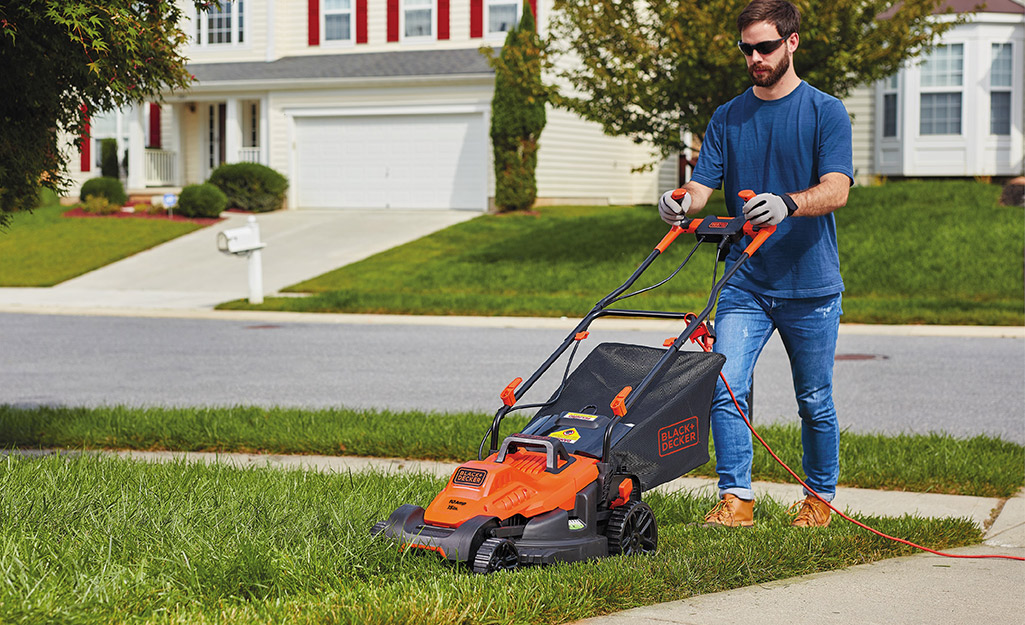
The greatest benefit of corded outdoor power tools also creates a significant disadvantage: Limited mobility.
Being connected to an electrical outlet means that your range of use is restricted by the length of your extension cords. Plus, it can be inconvenient to uncoil (and then recoil) a long power cord for a quick task, such as pruning a tree limb with an electric chain saw at the far end of your property.
How to Choose Between Corded and Cordless Power Tools
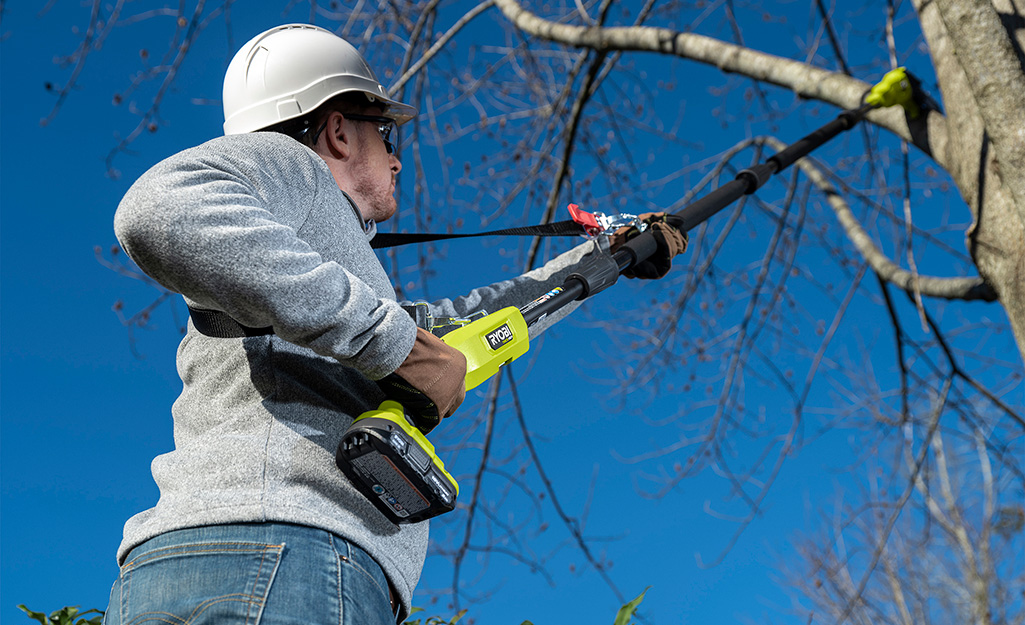
To choose between corded and cordless outdoor power tools, consider:
- How often you'll use them: Electric may be the better choice for tools you'll use a lot. How quickly batteries die for good depends on how often you charge them. Tools you use daily or weekly will likely need brand-new batteries much sooner.
- How long it takes to do the job: If you usually only need to use the tool for an hour or less, cordless may be the way to go. For example, a cordless edger may be a great solution if you only need to trim along one walkway.
- The size of your yard: If you have a large lawn, cordless power tools will free you to travel anywhere. At the same time, the battery may not last long enough to do a big job like mowing the grass.
- How much performance matters: For a difficult job, the consistent performance of a corded tool may be necessary. An example would be using an electric pole saw to cut through thick branches.
Tip: You don't have to go all corded or all cordless. Often, the best solution is to buy corded tools for some jobs and cordless ones for others.
Tips for Buying Cordless Power Tools
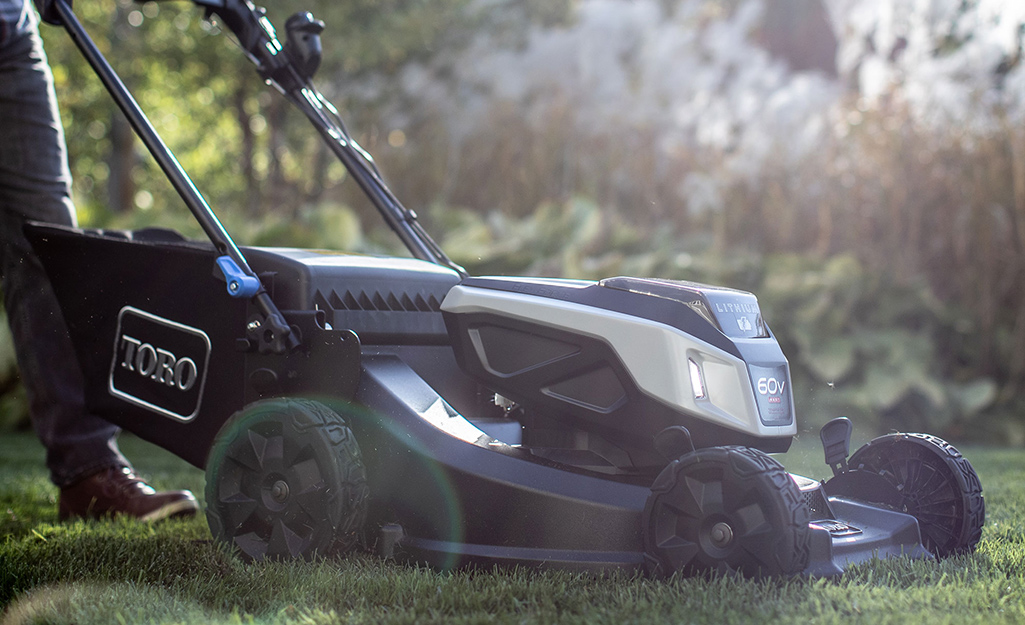
With cordless power tools, the battery should be a big point of comparison. Consider the battery life, but remember that this is only an estimate. Depending on how you use the tool and the battery's condition, it could last a little longer or you may need to charge it more often.
How long it takes to charge also matters. After all, you don't want to wait hours in the middle of your project for your tool to be ready again. Factor in the cost of buying at least one extra backup battery when comparing prices.
Tip: Double-check whether the battery comes with the tool. In some cases, you may need to purchase it separately.
Tips for Buying Corded Power Tools
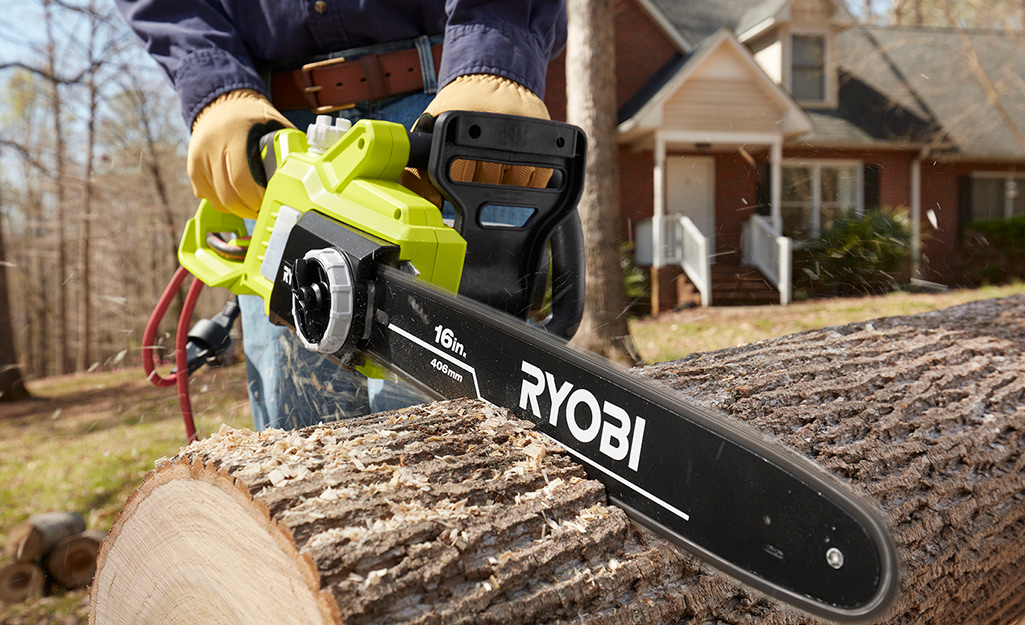
When shopping for corded power tools, compare cord lengths carefully. While you'll likely still need to use extension cords, a longer cord will give you more reach from the start.
Also, consider how the cord connects to the tool. Attached cords won't get lost, but they could get caught on things or become damaged. Some outdoor power tools have detachable cords that make them easier to store.
Tip: When choosing extension cords for power tools, look for outdoor-rated ones.
Your needs and preferences will determine the outcome of the corded vs. cordless outdoor power tools debate. You can use cordless varieties where you need, as long as a charged battery is available. Corded outdoor power tools will provide uninterrupted power but can lack the convenient portability of cordless models.
Ready to buy outdoor power equipment? Use The Home Depot Mobile App to locate productsand check inventory. We'll take you to the exact aisle and bay.





